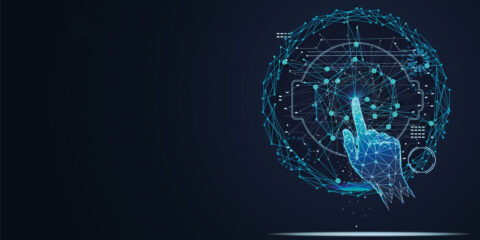DAO Use Cases – Exploring Potential Applications


DAO Use Cases – Potential Applications
In this article, we will analyze DAOs, their working principles, and the benefits they offer.
We will also delve into ten diverse and innovative use cases of DAOs, ranging from governance and finance to content creation, supply chain management, education, healthcare, and philanthropy.
Dive into the realm of decentralized autonomous organizations and their various applications.
- What is a decentralized autonomous organization (DAO)?
- How Do Decentralized Autonomous Organizations Work?
- 10 Utilization Use Cases of Decentralized Autonomous Organization
- DAO use case №1: Governance
- DAO use case №2: Decentralized Finance (DeFi)
- DAO use case №3: Content сreation and сuration
- DAO use case №4: Identity management
- DAO use case №5: Energy grids
- DAO use case №6: Insurance
- DAO use case №7: Supply сhain
- DAO use case №8: Education
- DAO use case №9: Healthcare
- DAO use case №10: Philanthropy
- What are the benefits of using a DAO?
- Conclusion
What is a decentralized autonomous organization (DAO)?
A decentralized autonomous organization (DAO) is a special organizational structure characterized by operating in a decentralized manner using smart contracts on a blockchain platform. It is designed to function autonomously without centralized control or intermediaries. DAOs, or Decentralized Autonomous Organizations, are revolutionizing crowdfunding by leveraging the power of cryptocurrency and exploring new frontiers like the metaverse, offering a decentralized alternative to traditional crowdfunding platforms.
At the core of a DAO are smart contracts. These contracts automatically enforce the rules and facilitate the organization’s governance. DAOs leverage the power of smart contracts use cases to automate and enforce rules, enabling transparent governance and facilitating innovative use cases across industries. Transactions and decision-making within a DAO are recorded on the blockchain, ensuring transparency and immutability. One key characteristic of a DAO is its decentralized nature.
How Do Decentralized Autonomous Organizations Work?
Decentralized Autonomous Organizations (DAOs) serve on blockchain technology to be autonomous and independent from any central authority. They are designed to function through smart contracts, which are self-executing contracts with the periods of the agreement directly written into code.
Employ DAO governance models to ensure effective decision-making and community participation. These DAO governance models aim to foster transparency, inclusivity, and decentralization within DAO, enabling stakeholders to shape the organization’s direction and decision-making processes collectively.
10 Utilization Use Cases of Decentralized Autonomous Organization
Decentralized Autonomous Organizations (DAOs) have surfaced as a pioneering vision with the potential to reshape various industries. By harnessing the force of blockchain technology and smart contracts, DAOs facilitate decentralized decision-making, transparent governance, and innovative financial systems. This article will explore ten diverse and innovative DAO use cases, ranging from decentralized finance and content creation to supply chain management and philanthropy.
These examples highlight the transformative power of social DAOs in promoting transparency, inclusivity, and efficiency across different sectors. Let’s delve into the exciting world of DAO and discover how they are revolutionizing how we organize, transact, and collaborate.
DAO use case №1: Governance
DAO enables decentralized decision-making by allowing token holders to participate in governance processes. Through voting mechanisms, token holders can propose and vote on changes to the organization’s rules, policies, and resource allocation. This promotes transparency, inclusivity, and accountability, as decisions are made collectively by the community rather than by a centralized authority.
One popular approach to decentralized governance is on-chain governance. In this model, all governance activities, including voting and decision-making, occur directly on the blockchain. This eliminates the need for intermediaries and allows token holders to participate and verify in real-time.
DAO use case №2: Decentralized Finance (DeFi)
DAO in the DeFi space facilitates various financial activities without intermediaries. For example, lending and borrowing platforms built on DAO allow users to lend their assets and earn interest or borrow assets directly from other users. Decentralized exchanges enable peer-to-peer trading, while yield farming platforms provide opportunities to earn additional tokens by providing liquidity to decentralized liquidity pools.
The potential applications of DAOs in the DeFi space are vast and continue to evolve. As the ecosystem grows, we can expect to see DAOs facilitating even more innovative financial activities, providing individuals greater control over their assets and promoting a more inclusive and accessible financial system.
DAO use case №3: Content сreation and сuration
DAOs can disrupt the content industry by creating platforms where the community rewards content creators directly and distributes ownership and control among community members. This eliminates the need for centralized intermediaries and allows content creators more control over their work. With DAOs, creators can receive fair rewards based on community-defined metrics such as votes, likes, or engagement. Users can curate and vote on the quality of content, providing a more democratic and merit-based system in which popular content is rewarded.
Furthermore, DAOs can facilitate collaboration and coordination among content creators. By providing a decentralized platform, DAOs enable creators to connect, transfer resources, and collaborate on projects. This fosters a sense of community and allows for creating diverse and innovative content.


Expert DAO Development
We build decentralized applications and smart contracts for a variety of uses.
DAO use case №4: Identity management
DAO can provide individuals with control over their data and identity. With DAOs, individuals can have a self-sovereign identity with full ownership and control over their personal information. Furthermore, DAOs have the potential to provide individuals with portable identities that can be utilized across various platforms and services.
This eliminates creating multiple accounts and sharing personal information with various centralized entities. By leveraging blockchain technology, DAOs can enable secure and verifiable identity verification without relying on centralized authorities. Users can own their data and choose which entities can access and use their information, enhancing solitude and lowering the risk of data breaches.
DAO use case №5: Energy grids
DAOs can play a crucial role in the development of decentralized energy grids. One such mechanism is the integration of Internet of Things (IoT) devices and smart meters into the energy grid. These devices can monitor energy production and consumption in real time, allowing for more efficient distribution and utilization of energy resources. DAOs can also enable the implementation of innovative pricing models for energy.
Through smart contracts, DAOs can incentivize the production and consumption of renewable energy. Users can sell their excess energy to other users within the DAO, promoting sustainability and reducing reliance on traditional energy providers. Peer-to-peer energy trading can also be facilitated, allowing users to purchase and trade energy directly from each other. Additionally, DAOs can support the development of decentralized energy storage solutions. Utilizing blockchain technology enables energy storage systems to be managed and coordinated within the DAO, allowing for efficient storage of stored energy and reducing wastage.
DAO use case №6: Insurance
DAO can disrupt the insurance industry by creating decentralized insurance platforms. A primary benefit of decentralized insurance via DAOs is the transparency and trust afforded by blockchain technology. All insurance transactions and policies are recorded on the blockchain, ensuring immutability and auditability. Another advantage of decentralized insurance through DAOs is the potential for lower costs. By eliminating intermediaries and automating processes, DAOs can reduce administrative overheads and streamline operations.
Through smart contracts and community consensus, DAOs can automate claims processing, lowering the need for mediators and minimizing the potential for fraud. Users can contribute to the insurance pool and receive coverage based on predefined conditions, providing more affordable and accessible insurance options.
DAO use case №7: Supply сhain
DAO can enhance supply chain management by providing transparency and traceability. By utilizing blockchain technology, DAOs can track and verify the trend of goods from the source to the end consumer. This ensures ethical sourcing, reduces counterfeiting, and improves overall supply chain efficiency by eliminating the need for intermediaries and manual record-keeping.
DAOs can also enable the implementation of smart contracts in supply chain management. This allows for automated and transparent execution of contractual obligations, such as payment terms, delivery schedules, and quality control.
DAO use case №8: Education
DAOs can transform the education sector by creating decentralized learning platforms. One of the key advantages of DAOs in education is the democratization of access to educational resources. By leveraging blockchain technology, DAOs can provide a decentralized academic content repository, making it accessible to learners worldwide. This removes barriers to access, such as geographical limitations or financial constraints, and promotes equal education opportunities. Through DAOs, students and educators can collaborate, create, and access educational content peer-to-peer. DAOs can incentivize the creation and sharing of high-quality academic resources, while users can earn tokens or reputation within the DAO for their contributions. This promotes lifelong learning, removes barriers to access, and empowers learners and educators.
Moreover, DAOs can provide a transparent and verifiable system for credentials and certifications. By recording educational achievements on the blockchain, DAOs can create a tamper-proof and globally recognized record of individuals’ skills and qualifications. This enhances trust and credibility in education and provides learners with portable and verifiable credentials.
DAO use case №9: Healthcare
DAO can improve healthcare systems by enabling secure and transparent sharing of medical records. One of the key advantages of DAOs in healthcare is the potential for enhanced interoperability and data exchange. Through DAO, patients can have ownership and control over their health data, granting access to healthcare providers as needed. DAO can also facilitate telemedicine services, connecting patients with healthcare professionals remotely. DAOs can facilitate secure and streamlined remote consultations between patients and healthcare professionals using blockchain technology and smart contracts.
This expands access to healthcare, particularly for individuals in remote areas or those with limited mobility, while also reducing healthcare costs and improving efficiency. In addition, DAO can incentivize health-related research and development, fostering innovation in the healthcare industry.
DAO use case №10: Philanthropy
DAO can revolutionize philanthropy by creating transparent and accountable platforms for charitable giving. Through DAO, donors can track the impact of their contributions, ensuring funds are allocated efficiently and effectively. Smart contracts can be used to confirm that funds are allocated according to predefined criteria, eradicating the need for mediators and reducing administrative overheads.
This enables more donated funds to support the intended causes directly. DAO can facilitate community participation in decision-making processes, allowing stakeholders to collectively determine the allocation of funds and support projects aligned with their philanthropic goals. This promotes transparency, reduces administrative costs, and increases trust in charitable initiatives.
What are the benefits of using a DAO?
A Decentralized Autonomous Organization (DAO) offers several benefits that can revolutionize traditional organizational structures and empower its participants. Overall, the benefits of using a DAO lie in its ability to foster trust, enhance autonomy, improve efficiency, and promote global collaboration. It represents a paradigm shift in organizational governance, opening up new possibilities for innovation, inclusivity, and decentralization in various industries and sectors.
Additionally, DAO can facilitate various functionalities such as dapp governance, proposal execution, asset management, incentivizing users, and fostering collaboration in social networks, virtual worlds, and shared virtual worlds. They can also be incorporated into social media platforms to enhance user interaction and participation. Some of the benefits of using a DAO include:
- Trustless and Transparent Governance
- Autonomy and Decentralization
- Increased Efficiency
- Global Participation
- Shared Ownership
- Scalability and Flexibility
- Resilience and Security
- Disintermediation and Cost Savings
Conclusion
Decentralized autonomous organizations (DAOs) can revolutionize industries by leveraging blockchain technology and smart contracts. DAOs offer transparency, accountability, and community participation, empowering individuals and fostering innovation. From governance and finance to content creation, supply chain management, education, healthcare, and philanthropy, DAOs are reshaping traditional organizational structures and creating new possibilities for decentralized and inclusive systems. As the adoption of DAOs grows, we expect to see even more innovative use cases and transformative impacts across different sectors.
Written by Vitaliy Basiuk
COO & Co-founder at EvaCodes | Blockchain Enthusiast | Providing software development solutions in the blockchain industry




